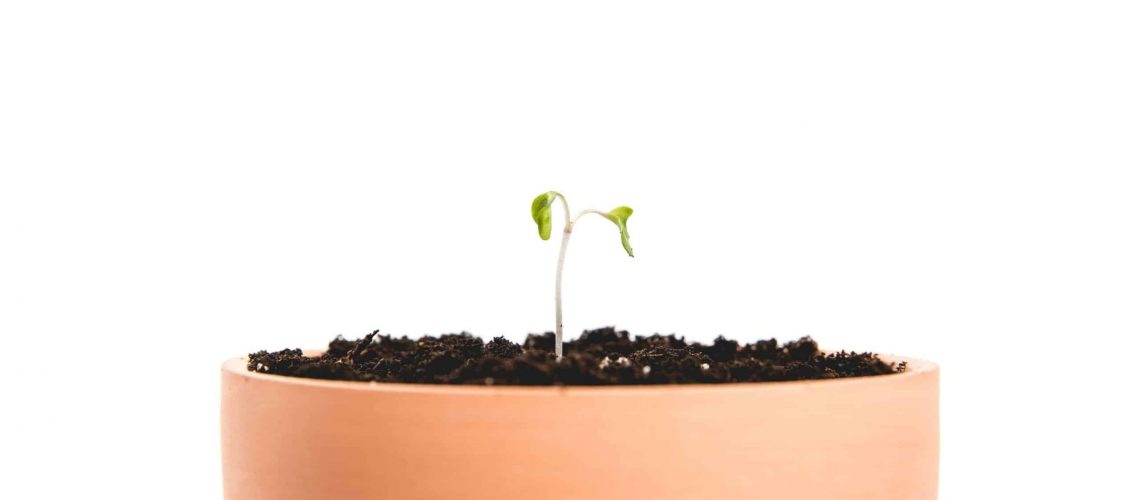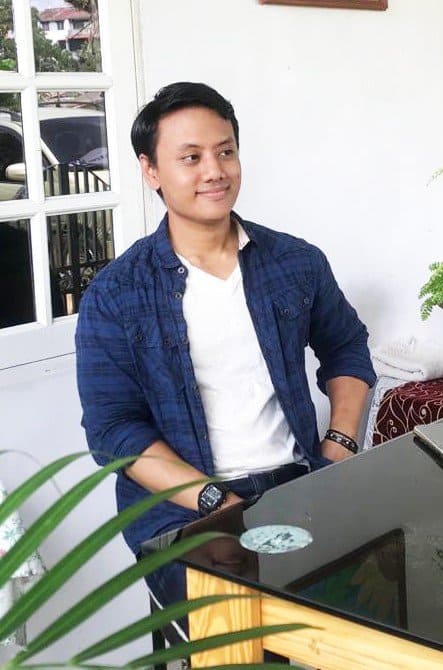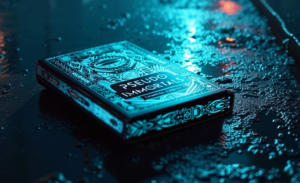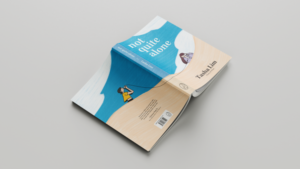To quote Graham Greene “Writing is a form of therapy, sometimes I wonder how all those who do not write, compose or paint can manage to escape the madness, melancholia, the panic and fear which is inherent in a human situation”.
If someone asked me 10 years ago what I wanted to be when I grew up, I never would have imagined the answer to be “poet”, but then again, I was never consciously pursuing that title nor was it ever something within my capacity to conceptualize at that age. My career options back then were “singer”, “scientist” and “teacher”. Oh, the boundless innocence of youth. Now looking back, I can’t think of myself doing anything else besides writing poetry. I suppose at some point, writing did start out as a form of therapy for me, but as the years went on, it sort of became a higher calling, my raison d’être. It’s funny how the universe hands us things that we never thought we wanted but can’t imagine ever living without, the moment it enters our lives.
My path to poetry was never a smooth one, nor was it something that I was actively documenting in my mind for posterity in case I was asked to write about it in some distant hypothetical future where I somehow did become a poet. Even now I have a hard time remembering when exactly my obsession for it began. I suppose my first experience with it was nursery rhymes and lullabies: “Twinkle, Twinkle, Little Star”, “Itsy Bitsy Spider”, “Humpty Dumpty”, “Jack and Jill”, etc. Eventually, as my love of fairytales and storytelling grew, I became estranged from poetry and began fancying myself an author at the tender age of 10, viciously scratching down what I thought would be the next great American novel only to end up with piles of unfinished manuscripts. Then I began setting my sights a little lower when I realized I lack the patience and the attention span to finish an entire novel, and started writing short stories.
My experience with fiction and poetry coincided during adolescence after discovering Tumblr and the “Chicken Soup for the Soul” books after which I started a blog showcasing all my pieces. I did not entirely begin immersing myself into poetry and abandoning fiction altogether until I started college. The first poetry books I remember buying were from indie publishers although I can’t remember the titles. Suffice to say I didn’t start out with the classics, but I did eventually discover Emily Dickinson, Robert Frost, Edgar Allen Poe and of course, Shakespeare. But the book that impacted me the most in my writing was “If Only” by Shahril Nizam. Then Lang Leav came into my life, followed by her enigmatic lover, Michael Faudet, and the rest was history.
My earlier pieces were mostly a mix of free verse and rhyme, but they lacked finesse and were terribly juvenile, an attempt at emulating more refined pieces. Even now, I feel like my poetry is terribly derivative, a product of all the books I’ve read, the songs I’ve listened to and all the Instagram posts that I’ve ever liked and saved. But that’s how art changes, we emulate our idols and mentors, infusing a piece of ourselves into the artwork, turning it into a collage of all our experiences and inspirations. That was basically what “More than Words” is, a symphony of voices borrowed from all the writers and poets that I have ever admired harmonizing like a choir of angels in the background, with me as the lead vocalist.
I did not immediately transition from prose to verse overnight, nor did I ever imagine to one day even associate the word “poet” to my identity. I still have a hard time doing so due to my romantic, and might I say, unrealistic, ideals of what a poet should look and sound like, all of which I do not embody. However, I have slowly come to the realization, after dozens of self-help books, that comparison truly is the thief of joy and that to fit yourself into the mold that you or society has created only limits your potential to become more than one version of something. Oftentimes we are so critical of our talents and our imperfections that we overlook the bigger picture: life is too short to not do what you love.
I wasn’t actively dedicating myself to poetry to maybe, one day turn it into a career. In some ways, it isn’t, not to me at least. At this point, poetry is so engrained into the fabric of my soul that it’s sort of a way of life and not just something that I happen to make money off on the side. The first is inevitable, the second is a happy coincidence. Nevertheless, there is nothing more rewarding than being able to see tangible rewards for your work, even though the work itself involves encoding your thoughts, memories, and emotions into words.
Some people might argue that, yes, I could just publish my poems for free on a blog, or just keep them on my hard drive never to see the light of day, but I have always been driven by a deep sense of urgency ever since starting on my first manuscript. In my mind, I somehow owe these poems, and the higher forces of creativity and inspiration that conceived them, to ensure that they will eventually be compiled and put up on a shelf in a bookstore.
That sounds like a crazy way of thinking, but Elizabeth Gilbert, author of Eat, Pray, Love once wrote in her book Big Magic: Creative Living Beyond Fear, that inspiration is “alive” and that artists channel this mysterious force when they create, and that they are not wholly responsible for the work they produce. As if the poem or painting was a divine revelation sent from the universe to be disseminated by a worthy candidate. And that’s what I’d like to think of myself as, a humble oracle for the unfathomable forces of the cosmos.
Word to the wise, make art because it brings you joy, or at the very least, help you cope with the unbearable circumstances of reality. After all, there is no profession nobler, not only because there is no guarantee of reward or compensation but because art is the greatest expression of the human spirit, and that there is no right or wrong way to go about it.




